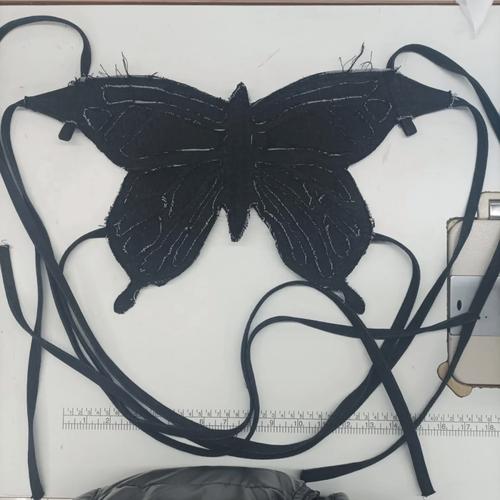
Understanding the Black Fly Bite: A Comprehensive Guide
Have you ever been out for a hike or a picnic and come back with itchy, red bumps on your skin? Chances are, you’ve been a victim of the black fly bite. These tiny insects are notorious for their painful bites and the irritation they cause. In this article, we’ll delve into the details of the black fly bite, exploring its causes, symptoms, prevention, and treatment.
What is a Black Fly Bite?
The black fly, also known as the horse fly or deer fly, is a member of the family Simuliidae. These insects are found in various parts of the world, particularly in areas with warm, moist climates. Black flies are known for their distinctive black and yellow coloration, which sets them apart from other biting insects.

How Do Black Flies Bite?
Black flies have a unique feeding mechanism. They use their long, slender mouthparts to pierce the skin and suck blood. This process can be quite painful, and the bites often leave behind red, itchy bumps. Unlike mosquitoes, which feed on nectar and other plant juices, black flies are blood-sucking parasites.
Common Symptoms of a Black Fly Bite
When you’re bitten by a black fly, you may experience several symptoms, including:
| Symptom | Description |
|---|---|
| Red, itchy bumps | The most common symptom, these bumps can be quite painful and may last for several days. |
| Pain | Black fly bites can be quite painful, especially when they occur on sensitive areas like the face or neck. |
| Inflammation | The area around the bite may become swollen and red. |
| Bruising | In some cases, the bite may cause bruising or discoloration of the skin. |
Preventing Black Fly Bites
Preventing black fly bites is essential, especially if you’re planning to spend time in an area where these insects are prevalent. Here are some tips to help you avoid being bitten:
- Wear long-sleeved shirts and pants when outdoors.
- Use insect repellents containing DEET or picaridin.
- Stay in areas with wind, as black flies are less likely to fly in windy conditions.
- Avoid being outdoors during dawn and dusk, when black flies are most active.
- Use screens on windows and doors to keep black flies out of your home.
Treating Black Fly Bites
If you do get bitten by a black fly, there are several ways to treat the bite and alleviate the symptoms:

- Cool the bite with ice or a cold compress to reduce swelling and pain.
- Apply a hydrocortisone cream or calamine lotion to soothe the itching.
- Take an antihistamine to reduce inflammation and itching.
- Keep the bite clean and dry to prevent infection.
When to Seek Medical Attention
In most cases, black fly bites are harmless and can be treated at home. However, there are some situations where you may need to seek medical attention:
- If the bite becomes infected, with signs of redness, swelling, or pus.
- If you develop a severe allergic reaction to the bite, such as difficulty breathing or swelling of the throat.
- If you have a weakened immune system and are at risk of infection.
Conclusion
Black fly bites can be a nuisance, but with proper prevention and treatment, you can minimize the discomfort and irritation they cause. By understanding the causes, symptoms, and prevention methods of black fly bites, you can enjoy your outdoor activities without worrying about these pesky insects.







